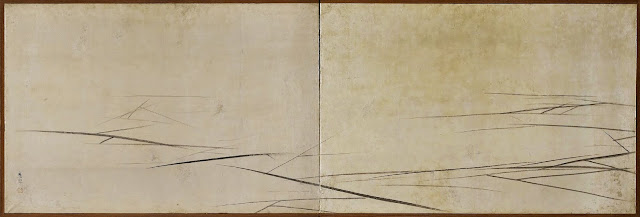 |
| "Cracked Ice", a tea screen painting by Maruyama Okyo (Japan, c. 1750-1799). |
“Beware the barrenness of a
busy life.”
– Socrates
A coping mechanism I had developed a few years ago, in
the aftermath of my divorce, is a principle I call “Deliberate Action”. It is easy
to feel overwhelmed when there’s so much on one’s plate. Deliberate Action is a powerful strategy to make
sure the important things get done, by focusing only on those important things.
It works by deciding, each day, what is the most
important thing you want to do that day, then making sure you do that, even if
that’s the only real accomplishment you end up making that entire day. In a
world where we are bombarded with distractions, and are expected to keep busy
all the time, doing only one thing a day may seem lazy and irresponsible. Yet
think of how much can be accomplished if you did one important thing a day,
each day, for a year, instead of spending time hopping around between tasks,
many of which aren’t really important anyway, and leaving everything
unfinished.
Deliberate Action is minimalistic, in line with the “Less Is More” principle and "Letting Go". Purging to-do-lists is as important as purging old clothes
one no longer wears. Instead of trying to do everything, but ending up
wondering where to begin, I keep the list of tasks I agree to small, but do
them. That's how I advance towards my goals.
Deliberate Action does not defy planning. In fact,
goal-setting and planning are essential for making it work at all. Selecting an
appropriate daily task cannot proceed without comprehensive and
clearly-articulated goals. Deliberate Action is therefore mindful action.
Driven on autopilot instead, much of our time is wasted on the unimportant. Instead,
deliberate action works magically: with less effort, we can do more. This is
what the Taoists refer to as “non-action” or “effortless action.”
It is much like Chinese and Japanese brush painting,
where the white space is held as important as the brushstrokes, often with the
white space intertwining with the subject like a yin-yang symbol. The white
background only serves to bring out and enhance the importance of the
painting’s subject. By removing the clutter, we can more easily find what we
want.



